The brothers behind the UK's only Holocaust museum
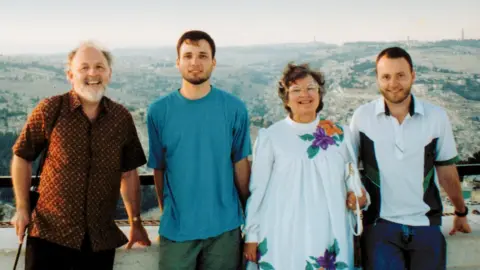 The National Holocaust Centre and Museum
The National Holocaust Centre and MuseumEvents to mark the 75th anniversary of the liberation of Auschwitz have been held at the National Holocaust Centre and Museum in Nottinghamshire.
But how did the UK's only dedicated Holocaust museum come to be buried deep in the English countryside, close to the small village of Laxton?
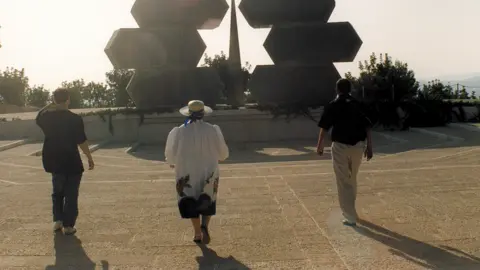 The National Holocaust Centre and Museum
The National Holocaust Centre and MuseumThe story begins with a family trip two young Methodist brothers took to Israel.
During their visit to the country in 1991, James Smith, then a 22-year-old medical student, and his 24-year-old brother Stephen decided to go to Yad Vashem, the World Holocaust Remembrance Centre. What they saw changed their lives.
James, now 50, told the BBC: "It was a massive eye-opener. We'd heard of the Holocaust but we thought of it as something that happened in a completely different age - it was not really our history.
"But that museum made it relevant to us.
"I remember walking out of the building and up the road in silence. We looked at each other - what do we do with this?"
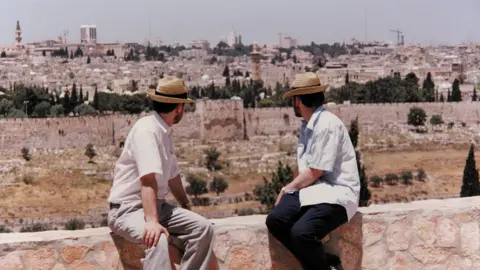 The National Holocaust Centre and Museum
The National Holocaust Centre and MuseumWhen they got back to the UK they looked for a movement they could join or a memorial centre they could help at.
But despite increasing awareness at the time - the Holocaust was added to the curriculum in 1991 and Steven Spielberg's box office hit Schindler's List came out in 1993 - there was no national centre.
So the pair decided to convert some rooms in their family home, in Laxton.
By the time the centre officially opened in 1995 those few rooms had taken over the whole house, and to an extent, their lives. Both ultimately gave up their careers to focus on it.
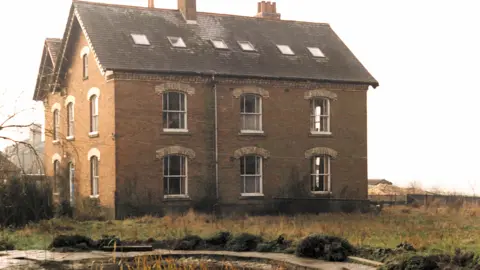 The National Holocaust Centre and Museum
The National Holocaust Centre and Museum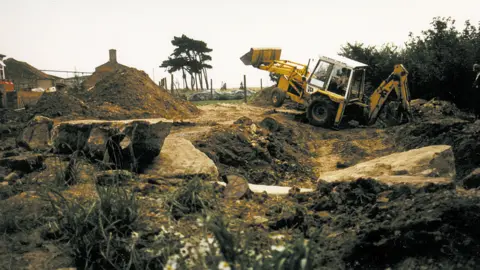 The National Holocaust Centre and Museum
The National Holocaust Centre and MuseumJames said: "It definitely ended up larger than we expected.
"We just felt strongly that something should be done. The Holocaust should be remembered by non-Jews - it should be something we all share in.
"A genocide could happen again and we wanted this to be a warning from history."
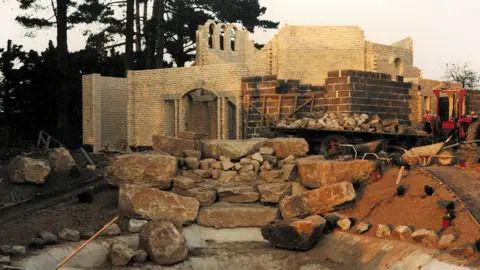 The National Holocaust Centre and Museum
The National Holocaust Centre and MuseumToday the centre still claims to be the only one in the country completely dedicated to Holocaust remembrance and education.
The museum, which has thousands of visitors each year, is home to a number of permanent exhibitions, a memorial garden, and produces exhibits that tour the UK.
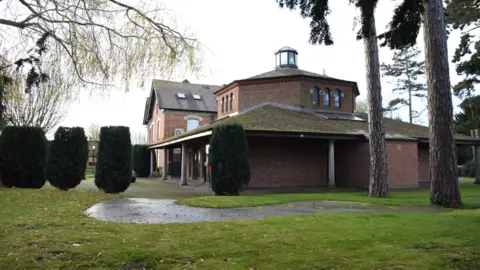 The National Holocaust Centre and Museum
The National Holocaust Centre and MuseumIt employs about 30 people and a small army of volunteers, including Holocaust survivors who do daily talks to the approximately 30,000 annual visitors, many of them school children.
One of those survivors, Martin Stern, 81, said: "I think it's the most important such institution in the UK and is of worldwide importance.
"And its position in the country means people are away from the hurly-burly and distractions - if it were in a city it would not be the same kind of place."
Auschwitz: 75 years on
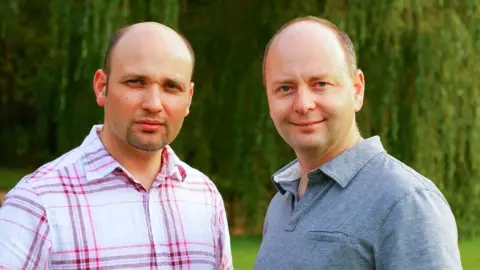 Nathanael Boarer/The National Holocaust Centre
Nathanael Boarer/The National Holocaust CentreThe brothers are still connected with the centre - James is the life president - although both have become involved in other projects.
In 2000 they set up the international group the Aegis Trust in response to genocide in Rwanda and Bosnia.
James is the CEO of this organisation while his brother Stephen is an expert in Holocaust education, based in California.
"My only regret is have we done enough?" James said. "Could we have aspired to more, grown to more?
"But if all our effort has made one person think differently about using violence, it has been worthwhile."

Follow BBC East Midlands on Facebook, Twitter, or Instagram. Send your story ideas to [email protected].
